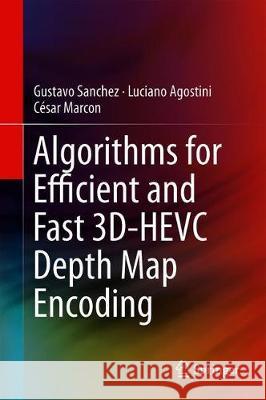Algorithms for Efficient and Fast 3d-Hevc Depth Map Encoding » książka
topmenu
Algorithms for Efficient and Fast 3d-Hevc Depth Map Encoding
ISBN-13: 9783030259266 / Angielski / Twarda / 2019 / 83 str.
Algorithms for Efficient and Fast 3d-Hevc Depth Map Encoding
ISBN-13: 9783030259266 / Angielski / Twarda / 2019 / 83 str.
cena 201,24
(netto: 191,66 VAT: 5%)
Najniższa cena z 30 dni: 192,74
(netto: 191,66 VAT: 5%)
Najniższa cena z 30 dni: 192,74
Termin realizacji zamówienia:
ok. 16-18 dni roboczych.
ok. 16-18 dni roboczych.
Darmowa dostawa!
Kategorie:
Kategorie BISAC:
Wydawca:
Springer
Język:
Angielski
ISBN-13:
9783030259266
Rok wydania:
2019
Wydanie:
2020
Ilość stron:
83
Waga:
0.31 kg
Wymiary:
23.39 x 15.6 x 0.64
Oprawa:
Twarda
Wolumenów:
01
Dodatkowe informacje:
Wydanie ilustrowane











